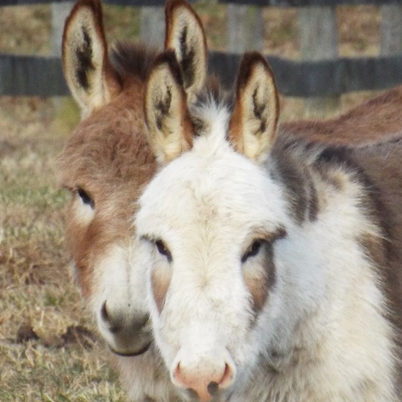by Mary E. Riordan, DVM
Donkeys, ponies and miniature horses, particularly those who are overweight, are prone to a serious disease called “hyperlipemia” which simply means too much fat circulating in the bloodstream. This may be brought on by going off feed or not eating enough during a time of stress, infection, high energy need (most commonly pregnancy) or pain. Donkeys can be very sensitive, but may not show obvious indications of illness or discomfort like a horse will. When these animals fail to eat enough the body responds by using its excessive fat stores to try to provide energy to the body and brain, but this process is often overresponsive resulting in very high blood triglyceride levels (a type of broken down fat) which deposit in and clog the internal organs since they cannot burn the fat for energy quickly enough. If left untreated death may occur in as little as 10 days from liver or kidney failure.
Any time a donkey is off feed it should be monitored for signs of hyperlipemia such as icterus (yellow gums and eyes), depression (dullness, lack of interest in normal activities or people), weakness, diarrhea, ataxia (wobbliness when moving), seizures or pressing the head against solid objects. Rapid weight loss, colic signs (rolling, pawing, looking at sides) and diarrhea can also occur. Many of the signs are related to the liver failing. Donkeys are very good at hiding their illnesses so these signs may be subtle.
Quick attention and treatment can greatly improve the prognosis. Your veterinarian can use physical exam findings and blood work to determine if your donkey is at risk or having an episode of hyperlipemia. The blood will often appear pearlescent and the serum opaque once spun down to separate the liquid portion from the blood cells. The most successful treatment is aggressive with feeding and intravenous fluids and sometimes requires hospitalization. Please contact your veterinarian if you think your donkey may be ill for specific treatment recommendations.
